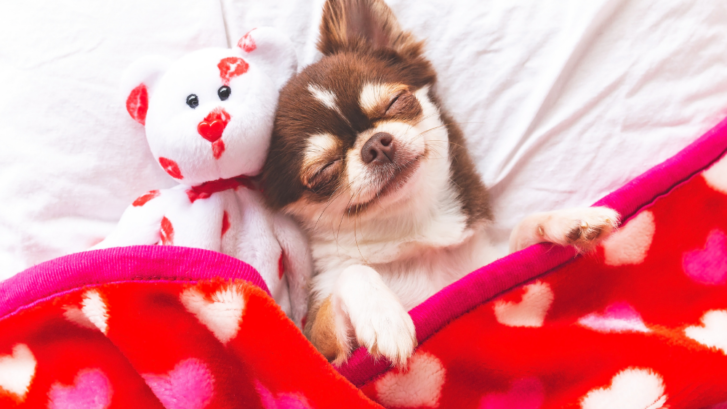Top 8 Ways to Get Better Sleep
How important is getting better sleep anyway?
Everyone knows that most adults need between 7 and 8 hours of sleep at night for optimal health benefits. Teenagers need on average 8 to 10 hours of sleep children and babies are the second heaviest sleepers at 9 to 13 hours a night, and infants win the gold with up to 17 hours of sleep in a 24-hour period! The benefits of a great night’s snooze reign supreme over any other habit, and in fact, the average person spends 33 years in bed. However, most reasons you probably can’t hit the snooze button enough in the morning can be rectified with some tweaks in your daily routine.
- Set the mood to cruise to dreamland
Weather permitting, a cool, dark, calm setting is the best way to get a great night’s sleep. The human body temperature on average decreases one to two degrees when we sleep. It functions this way so that our body can “recharge” from the day’s activities and conserve energy.
- Sleep hygiene is Crunching Bed Time, CBT-style
If you speak to a psychologist who specializes in Cognitive Behavioral Therapy – and you can by setting up an appointment here at Healthpointe – one thing that may come up is sleep hygiene. There is a little cheat code to getting better sleep that stems from the idea of maintaining a sleep-centric ideology towards the bedroom. It’s a little number I like to call The ‘S’ Rule: only using the bed for Sleep, Sickness, and Sexual activity. A specialist could also connect you with other resources and techniques that could be beneficial to you and your specific needs, but The ‘S’ Rule can be helpful to shutting the mind down for a proper snooze.
- Cell phones, tablets, computers, smart TVs, gizmos and gadgets a-plenty
At this point, humans could probably be classified as cyborgs with how attached we are to our devices. Nevertheless, seeing as we haven’t developed a natural desensitization to the light they emit, they are probably keeping a lot of us awake at night. Significant use of our devices may be influencing our abilities to fall asleep, as it may be delaying the body’s circadian rhythm, but it can be done away with if we leave them outside the bedroom.
- The body has a clock, even if we ignore it sometimes
Surprise! It is not the urge we get from watching cute baby Tik Toks, it’s the circadian rhythm. A little (a lot) more boring, and (a lot) less cute, it’s the body’s natural system of repair. When we wake up and go to bed at the same time every day, we are more attuned to our body’s natural system, and eventually, it can help us fall asleep easier.
- The dreaded E-word: exercise
Introducing or increasing your daily exercise is not only good for the body, but it is also good for the mind. Daily exercise, even just walking the dog, can make it easier to relax, and even just 30 minutes a day can improve sleep quality. For some exercise tips and ideas, check out what the NHS in the UK has available here.
- Now that that’s out of the way…
There are several things to avoid or decrease throughout the day or before you hit the sheets: alcohol, caffeine, exercise, nicotine, and food. Alcohol, food, and nicotine before bed can either keep you awake, disturb your sleep, or prevent your body from getting proper sleep. Exercise before bed can keep you awake because of the aerobic qualities it has, which increases your body’s temperature, so it’s best to save it for during the day, and less during the evening; but it’s your body, you do what you want, I’m not your mother, and that goes for your other vices. Only you really know what will work, but take a stab at avoiding or decreasing things, and see what improves your sleep quality over time.
- My mind’s awake, so I’m awake
This one is a little trickier, and involves what initially seems like a leap – if you can’t fall asleep, you might need to just get up out of bed. Staring at the clock doesn’t help, counting sheep doesn’t help, that new temperature regulated, weighted Sherpa blanket doesn’t help. Well, it is time to leap out of bed and try something else. Journal what might be worrying you, read a calming book, maybe even try listening to music or an audiobook. It might seem counterintuitive, but the goal is the same: to relax the mind enough back into a calming state, and doing something else besides forcing what won’t happen naturally could be the next step.
- New habits, new me: better sleep is on the way
Creating a new routine takes time, and not only that, it can be really difficult if it is something entirely new – but the benefit of introducing meditation, journaling, soothing scented lotion, or a warm bath or shower can be incredibly foundational. If nothing else, it gives you more techniques to add to the de-stressing toolbox, which have incredible benefits for your overall mental health and wellbeing. Give yourself time and grace to adapt, because changing behaviors, especially well set ones, are difficult, and every time you do, you will thank yourself later, with better sleep (hopefully) along the way.
Healthpointe is a leading multidisciplinary healthcare organization, offering a full range of medical services in practice locations throughout Southern California (Los Angeles County, Orange County, San Bernardino County, and Riverside County). Healthpointe has locations situated in over 10 cities in Southern California including La Mirada, which is conveniently located by Whittier, La Habra, Norwalk, Cerritos, Buena Park, and Santa Fe Springs. Leading our organization is a dynamic team of healthcare professionals who continually strive to be at the forefront of medical innovation and healthcare service delivery. For more information, a complete list of services, and Healthpointe locations, visit Healthpointe.net.


